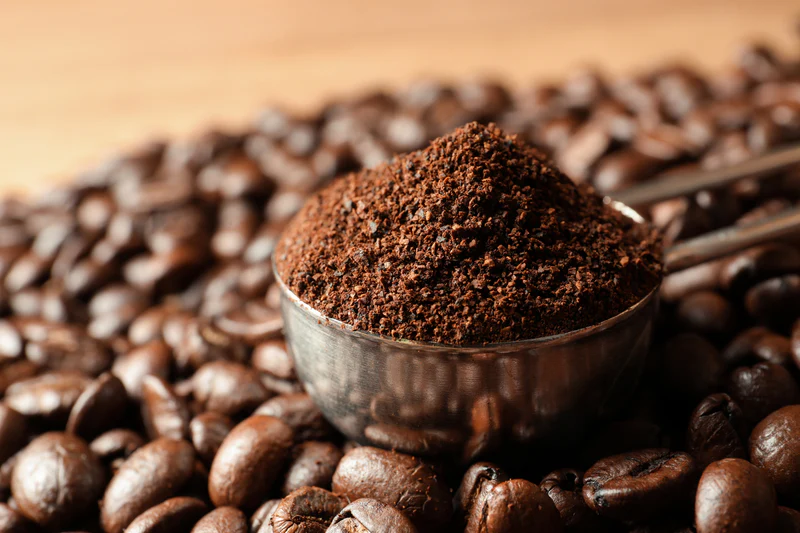Coffee enthusiasts often find themselves questioning the shelf life of their beloved beans. While ground coffee is notorious for losing its flavor and freshness quickly, unground coffee beans tend to have a longer shelf life. However, like any perishable product, coffee beans are not immune to aging. This article explores the shelf life of unground coffee beans, proper storage methods, signs of spoilage, and tips to extend their freshness.
Shelf Life of Unground Coffee Beans
Shelf Life Duration
Unlike ground coffee, which loses its aroma and flavor relatively quickly, unground coffee beans can last significantly longer. Typically, they can remain fresh for up to 6 to 12 months past their roast date if stored properly. The reason for this extended shelf life lies in the beans’ intact structure, which helps preserve the natural oils and flavors that ground coffee loses more quickly when exposed to air.
Aging Process
Although unground coffee beans have a longer shelf life, they do not last indefinitely. Over time, the oils within the beans oxidize, causing a gradual loss of flavor. However, they do not “go bad” in the sense of becoming unsafe to consume. Instead, they lose their vibrant flavors and aroma, producing a duller, less complex taste when brewed.
Proper Storage Methods
To maximize the shelf life and maintain the quality of your coffee beans, it’s essential to store them correctly.
Airtight Containers
Exposure to air is the number one enemy of coffee beans, as it leads to oxidation, which diminishes the beans’ flavor. Storing coffee beans in airtight containers is crucial to prevent air from infiltrating and compromising freshness. A vacuum-sealed container or a canister with a tight-fitting lid is an excellent choice for this purpose.
Cool and Dark Places
Temperature and light can significantly impact the freshness of coffee beans. It’s important to store your beans in a cool, dark place away from direct sunlight, heat, and moisture. Heat accelerates the oxidation process, while sunlight can degrade the coffee’s quality. A pantry or cupboard away from the kitchen’s heat sources is an ideal spot.
Avoid Freezing
While freezing might seem like a good option to extend the shelf life of coffee beans, it’s generally not recommended. Freezing can introduce moisture into the beans when thawed, which can negatively affect their flavor and texture. Additionally, frequent thawing and refreezing can further degrade the quality of the beans. If you must freeze beans, do so in small portions to minimize the need for repeated freezing.
Signs of Spoilage
Even though coffee beans don’t “go bad” in the traditional sense, they do show signs of aging and deterioration.
Loss of Aroma
One of the first indicators that your coffee beans are no longer fresh is the loss of their strong, aromatic scent. Fresh beans typically have a rich, intoxicating fragrance, while stale beans may smell flat, musty, or even rancid.
Change in Flavor
Stale coffee beans produce coffee that is often dull and lifeless, lacking the bold and complex flavors found in freshly brewed coffee. You may notice a bitter, sour, or overly mild taste that makes the coffee less enjoyable.
Visual Inspection
Over time, coffee beans may become dry and faded, losing their natural sheen. The color of the beans may also appear duller, and you might observe tiny cracks or a reduction in the size of the beans as the oils inside them evaporate.
Extending Freshness
While unground coffee beans can last for months, there are steps you can take to ensure they remain as fresh as possible for longer.
Small Batches
To prevent beans from aging before you have a chance to use them, consider purchasing coffee in smaller batches. This will allow you to consume them while they are still fresh and avoid the risk of beans sitting around for too long.
Roasting Dates
Always check the roasting date on the coffee packaging before making a purchase. Freshly roasted beans will deliver the most vibrant and complex flavors, so it’s best to choose beans that have been roasted within the last couple of weeks. The fresher the beans, the better your coffee will taste.
Customer Reviews and Experiences
Many coffee enthusiasts can attest to the difference that proper storage and freshness make in the final cup. Customers often share their experiences online, describing how switching to freshly roasted, properly stored beans has dramatically improved their brewing results.
User Feedback
“I used to buy coffee in bulk and store it in a glass jar on my countertop, but once I switched to buying smaller batches and keeping them in an airtight container, the taste of my coffee improved immensely. It’s amazing how fresh beans make such a difference!” – Sarah T., Coffee Enthusiast.
Expert Opinions
According to coffee expert and roaster James Howcroft, “The key to keeping coffee beans fresh is minimizing exposure to light, air, and heat. I always recommend storing them in airtight containers and avoiding refrigeration or freezing unless you’re dealing with large quantities that won’t be consumed quickly. And don’t forget the importance of buying freshly roasted beans!”
Conclusion
While unground coffee beans do not go bad in the conventional sense, they do age and lose their flavor over time. With proper storage methods—such as using airtight containers and keeping beans in a cool, dark place—you can enjoy fresh, flavorful coffee for several months. By purchasing smaller batches and checking the roasting date, you can ensure your coffee stays as vibrant as possible.
Related topics:
- Can I Store Coffee Beans in a Mason Jar?
- Can I Use a Food Processor to Grind Coffee Beans?
- Can I Bring Coffee Beans on a Plane? A Comprehensive Guide


